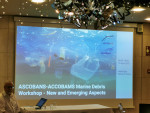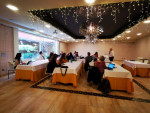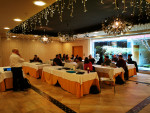Marine Debris Workshop - New and Emerging Aspects
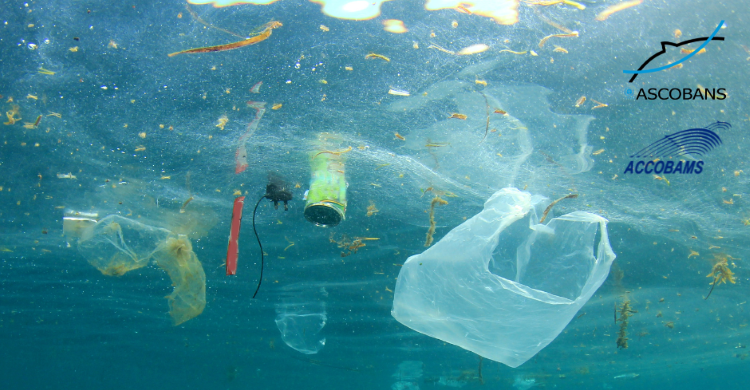
© canva.com
The Secretariats of ASCOBANS and ACCOBAMS jointly organized a workshop on Marine Debris - New and Emerging Aspects, on 15 April 2023 in O Grove, Galicia, Spain, a day before the start of the 34th Annual Conference of the European Cetacean Society and its associated workshops (ECS 2023).
Chaired by Mr Mark Simmonds (OceanCare), the overarching aim of the workshop was to achieve a better understanding of the effects of marine debris on cetaceans, including the relationship between marine debris and fisheries and taking into account the relationship between marine debris and other factors.
The workshop heard an overview of the relevant ACCOBAMS and ASCOBANS mandates, a review of the recommendations of the IWC 2019 workshop on marine debris, and overview of developments since 2020, including UNEA decision to establish an international legally binding instrument to end plastic pollution.
A talk on how to improve collection of relevant data on marine debris from stranded cetaceans noted that plastic pollution is a recognised menace to global marine wildlife, driven primarily by its pervasive presence in the marine environment, stemming from diverse human activities including packaging agriculture, and fishing. The reckless disposal of plastic items amplifies the threat, leading to severe consequences through ingestion and entanglement. Improving the assessment of the extent and severity of marine debris impacts on aquatic mammals necessitates internationally agreed protocols for stranding surveillance programs. Additionally, implementing improved waste management practices, particularly for end-of-life fishing gear, is imperative in mitigating this environmental challenge.
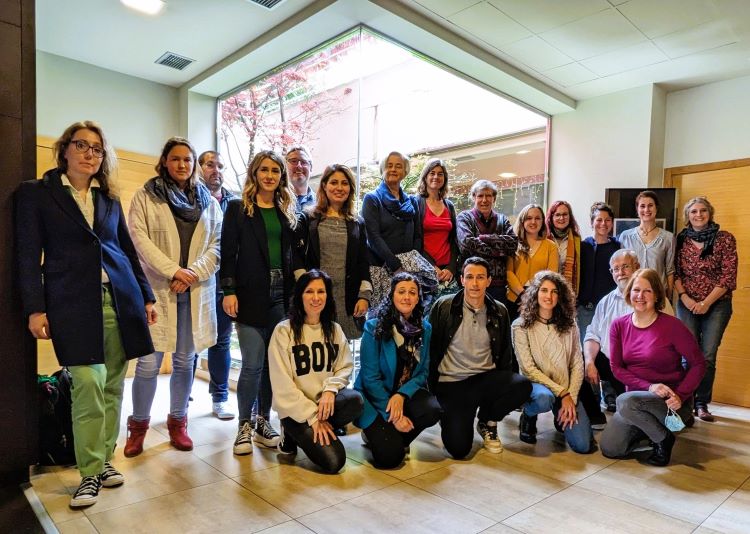
Workshops participants. © ASCOBANS Secretariat
The Global Ghost Gear Initiative (GGGI) was presented as driving solutions to the problem of lost and abandoned fishing gear. GGGI is the world’s largest collective impact alliance dedicated to solving one of the most critical challenges facing our ocean today – that of abandoned, lost and discarded fishing gear (ALDFG or “ghost gear”). ALDFG has been identified as the most harmful form of marine debris to marine biota, and recent estimates suggest it may account for as much as 86% of the floating macroplastic in the ocean gyres by weight, making it one of the most serious threats to aquatic biodiversity, fisheries sustainability, aquatic ecosystems and the health of coastal communities. The GGGI’s aims are to address ALDFG holistically at scale around the world through prevention, mitigation and remediation projects, policy interventions, implementation of best practices and building of evidence about the lasting effects of ALDFG.
Investigating the relationship between ingested marine litter and associated toxic chemicals, pathogens and pharmaceuticals, there has been growing concern in the last 30 years about hazards to cetaceans occasioned by multiple stress factors, due to bioaccumulation and effects of anthropogenic contaminants combined with other pressures. The need for sensitive markers of both legacy and emerging contaminants in cetaceans and for alternative ex vivo models to explore susceptibilities to these compounds led the scientific community to develop several biomarker techniques applicable to skin biopsies or tissues collected from stranded animals as a new nonlethal investigative tool. The discussions highlighted the lack of communication on the consequences of this contamination for the health of the animals. Because toxic contamination is not visible, it's an issue that attracts little attention. The need to make this issue more visible and to show that ingestion of plastics has an impact on animal health was emphasised. In particular, for new contaminants compared to old ones, no thresholds are defined to determine how dangerous the contamination is and the consequences for animal health.
Further presentations included UK fishing gear strategy and targets required to reduce waste and environmental impact, best practice for sampling and recording of micro-debris, introduction to consideration of cetacean hot spots, utilising cetacean species distribution data to identify hotspots in European Seas, and using cetaceans as indicator species of the impacts of marine litter. The participants agreed on recommendations from the workshop, which are available here.
The report of the workshop will be posted on the workshop page in due course.
Last updated on 09 December 2023



